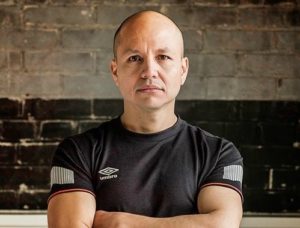A simple equation for playing up to your potential in youth soccer

By Coach Gad Espinosa
 Editor’s Note: This article outlines Step 3 in Coach Gad’s series for youth soccer parents on ‘5 Steps Your Soccer Player Must Take to be More Confident, Focused and Resilient‘.
Editor’s Note: This article outlines Step 3 in Coach Gad’s series for youth soccer parents on ‘5 Steps Your Soccer Player Must Take to be More Confident, Focused and Resilient‘.
Parents, let’s start tackling the issue of how to get your child’s brain working for them instead of against them, (see my previous article) so they can play up to their potential.
It all starts with the following simple equation:
Mind + Body = Performance
As human beings, the process is that we think first, then we feel and consequently, our feelings dictate how we behave, or in sports, how we perform.
This is important to know because you can see how changing thought patterns ultimately will affect the way a player performs.
Let me give you an example: Say your child makes it to the final of a very important tournament and they are playing their biggest rival. In the car on the way to the game, they’re so nervous that their palms are sweaty and they can feel their heartbeat almost coming out of their shirt.
Now nerves are OK to a certain point, but being this nervous is not great. The brain is subconsciously saying: ‘I don’t like this feeling, why are we going to do this?’
Therefore, my question is, why is your athlete so nervous? Based on the mind + body connection to performance, something in their thoughts has them feeling this way. What could this be?
Well, it usually centers around a negative thinking pattern. Thoughest like these are running through their heads:
‘What if I mess up? I can’t afford to play badly today! We have to beat this team! I hope the coach doesn’t take me out right away.’
The thinking centers around negative thoughts which the brain doesn’t like. This sends emotions of nervousness and doubt, which then block the athlete from making quick, clear decisions and playing at their best.
What to do then? Well, the answer is that the athlete needs to be disciplined to stop themselves and consciously start to think about not only positive things, but more importantly, positive powerful thoughts.
In this case, if I was in the car on the way to the tournament final, I would be thinking the following:
‘It’s overtime and I make an amazing slide tackle in the middle of the field to win a ball. Then I get up do a quick move to get by a defender and provide a perfect 35-yard pass to my winger. I race down the field and my winger executes a perfect cross that I put in the top right corner via a diving header to win the championship.’
I never get tired of telling this story. It makes my heart pump, I feel like going outside and practicing every time. This is a powerful thought that changes feelings of nervousness into excitement. Now, the brain is saying “I like this. This feels good, we can do this, let’s go!”
Now your athlete shows up to the game much more confident, and their decision making is clearer, smoother and quicker. They have all areas of their brain ready to fire correctly, giving them the best chance to play at a high level!
This is how an athlete gets their brain working for them. This is the power of brain-training!
Next week we’ll look at Step #4. In the meantime, if you want some more powerful insight, you can pick up my free guide below.
P.S. – Be sure to pick up my free guide ‘4 Keys to Your Soccer Player Needs to Make ASAP! (To gain confidence, focus and resiliency) by CLICKING HERE! – This starts the brain-training process.
SOCCERWIRE MARKETPLACE
- FC Bayern Soccer Camps - $30 PROMO CODE: BMSOCCERWIRE
- Real Colorado Cup 2026
- Join a College Coaches Showcase Camp Today
- MICFootball Punta Cana 2026
- Dana Cup Hjørring 2026
- 15th Annual Loudoun Soccer College Showcase
- OFFICIAL FC BARCELONA SOCCER CAMPS - PROMO CODE: FCBSOCCERWIRE
- New England Copa Surf 2026
- Adidas National Cup 2026
- Boston International Cup Memorial Day 2026

















